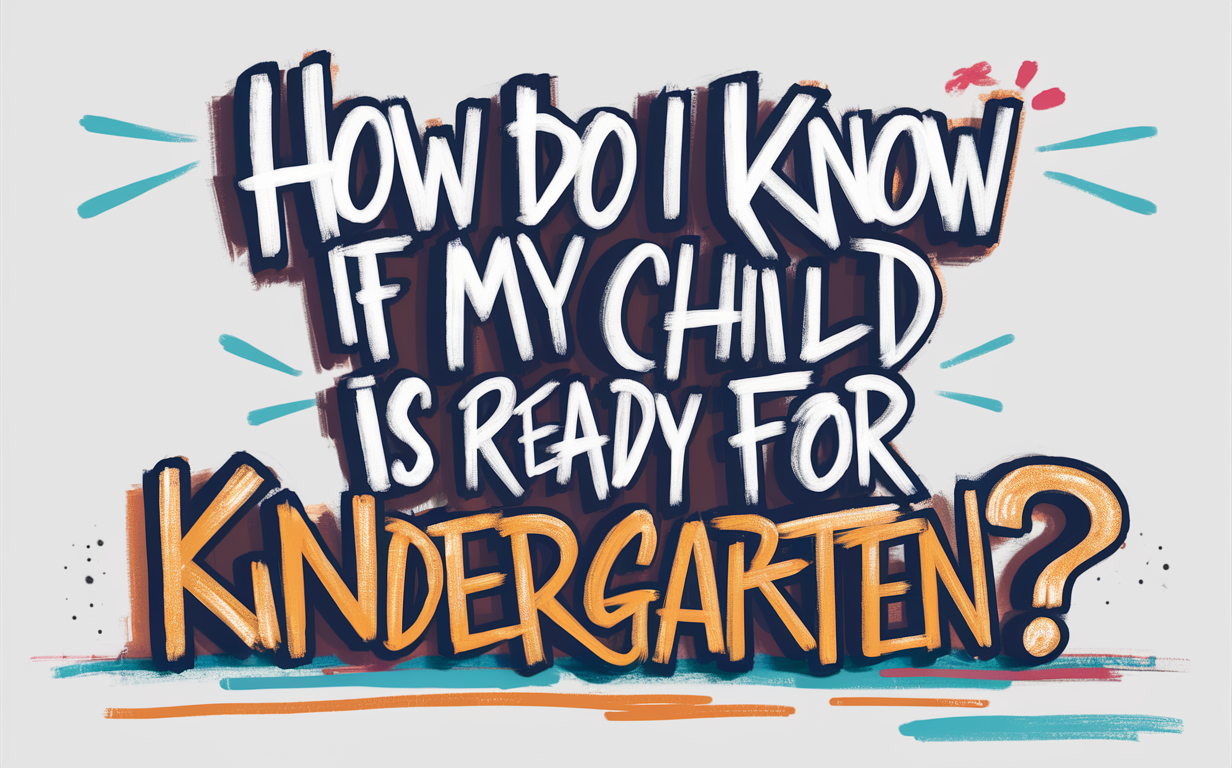Beyond the ABCs: A Holistic View of Readiness
The question of kindergarten readiness often sends parents down a rabbit hole of flashcards and alphabet songs. While knowing letters and numbers is helpful, true readiness is far more complex and beautiful. It’s a tapestry woven from threads of social grace, emotional resilience, physical coordination, and budding independence. Educators consistently report that children who can manage their feelings and get along with others are often better equipped for the classroom environment than those who can read but struggle with self-regulation.
Think of readiness not as a pass/fail test, but as a holistic profile of your child’s current development. The goal isn’t to create a perfect student on day one, but to ensure your child has the foundational skills to participate, learn, and feel successful in a group setting. This guide breaks down readiness into five core domains, helping you see the bigger picture.
Social-Emotional
Language & Cognitive
Self-Help & Independence
Physical Development
Domain 2: Language & Communication Skills
Kindergarten is a language-rich environment. Children need to be able to understand what the teacher is saying and express their own needs, thoughts, and ideas. This isn’t about having a massive vocabulary, but about functional communication. Can they ask for help? Can they tell you about their day? Can they follow a story?
Receptive Language (Understanding)
This is about processing and making sense of spoken language. A ready child can typically follow stories and answer simple questions about them (e.g., “What did the bear do next?”). They understand positional words like “under,” “over,” and “next to.
Expressive Language (Speaking)
This is the ability to use words to communicate. A child entering kindergarten should be able to speak in complete sentences of five to six words. They should be understandable to strangers most of the time, even if they still have some pronunciation errors (like “w” for “r”). They can tell a simple story or recount a recent event.
Asks for Help
Instead of getting frustrated, can they use their words to say, “Can you help me with my zipper?” or “I don’t understand.”
Enjoys Stories
Shows interest in books and being read to. Can sit for a short story and talk about the pictures or what’s happening.
Communicates Needs
Can clearly state basic needs, such as “I’m hungry,” “I need to use the bathroom,” or “My tummy hurts.”
Domain 3: Cognitive Skills & Academic Basics
This is the area parents often worry about most, but it’s important to keep expectations realistic. Kindergarten is *for learning* the ABCs and 123s, not a place that requires mastery beforehand. The key cognitive skills are more about the *process* of learning: curiosity, problem-solving, and the ability to focus.
Pre-Reading and Pre-Math Skills
These are the foundational concepts that prepare a child for formal instruction.
- Letter Recognition: Recognizing some letters, especially those in their own name. Knowing all 26 is a bonus, not a prerequisite.
- Phonological Awareness: The ability to hear sounds in language. This includes recognizing rhyming words (cat, hat) or words that start with the same sound (ball, boy).
- Number Sense: Counting to 10 (or higher), understanding that numbers represent quantities, and recognizing a few written numerals.
- Shapes and Colors: Identifying basic shapes (circle, square, triangle) and colors.
Curiosity is the engine of achievement. A child who asks “why” is ready to learn, regardless of how many letters they know.
Domain 4: Physical Development & Motor Skills
The kindergarten day is physically active! From the playground to the art table, children need a baseline of physical coordination and stamina. This is broken down into two main areas.
Gross Motor Skills
These involve the large muscles of the body. A child with developing gross motor skills can run, jump, hop, and climb with reasonable coordination. They have the stamina to make it through a full school day without becoming overly fatigued.
Fine Motor Skills
These involve the small muscles in the hands and fingers. They are crucial for school-related tasks. A child ready for kindergarten should be able to:
- Hold a pencil, crayon, or marker with a functional grip (it doesn’t have to be a perfect tripod grip yet).
- Use child-safe scissors to make snips or cut along a line.
- Manipulate small objects like blocks, puzzle pieces, and beads.
- Begin to copy basic shapes or letters.
Domain 5: Self-Care & Independence
With one or two teachers for a large group of children, independence in basic self-care is vital. It frees up teachers to focus on instruction and helps a child feel confident and capable. These are practical life skills that make a huge difference in the classroom.
Bathroom Independence
Can use the toilet on their own, including wiping, flushing, and washing hands without assistance.
Dressing Themselves
Can manage their own coat, shoes (Velcro is great!), and other simple clothing items for recess or bathroom breaks.
Managing Belongings
Can open their own lunchbox and food containers, and knows how to put their things in their backpack or cubby.
Basic Hygiene
Knows to cover their mouth when they cough or sneeze and use a tissue when needed. Understands the importance of washing hands.
Your Kindergarten Readiness Checklist (Interactive)
Use this checklist as a guide, not a test. It’s designed to help you identify areas of strength and areas where your child might benefit from a little more practice. Remember, “emerging” or “sometimes” is perfectly normal! Click each item to check it off and see a visual representation of your child’s profile.
Frequently Asked Questions
References & Further Reading
For more information, explore these expert resources from leading organizations in child development and education.
Is Your Child Ready for School?
NAEYC (National Association for the Education of Young Children)
An excellent overview from a leading authority on early childhood education, focusing on a holistic, developmentally appropriate view of readiness.
Kindergarten Readiness Skills Checklist
PBS Kids for Parents
A parent-friendly resource from PBS that provides practical tips and activities to help build readiness skills in a playful, supportive way.
Kindergarten readiness: What it is and how to support it
Understood.org
This resource is particularly helpful for parents of children with learning and thinking differences, but offers valuable insights for all families on the components of readiness.
Disclaimer: This content was automatically imported from a third-party source via RSS feed. The original source is: https://babieblue.com/how-do-i-know-if-my-child-is-ready-for-kindergarten/. xn--babytilbehr-pgb.com does not claim ownership of this content. All rights remain with the original publisher.



Domain 1: Social & Emotional Development
This is the bedrock of kindergarten success. The classroom is a bustling social environment. A child’s ability to navigate this world—to share, take turns, listen, and manage big feelings—is crucial. Children who are emotionally ready can separate from parents without excessive distress, show interest in other children, and begin to understand the concept of “rules.”
Key skills in this domain involve a child’s internal world (emotional regulation) and their external interactions (social skills).
Plays with Others
Can they engage in cooperative play, share materials, and take turns? This shows an understanding of social give-and-take.
Follows Rules & Directions
Can they listen to and follow simple, two-step instructions (e.g., “Please get your coat and line up by the door”)?
Manages Frustration
When a block tower falls or a crayon breaks, can they express frustration without a major, prolonged tantrum? Developing coping skills is key.
Shows Empathy
Do they notice when another child is sad or hurt? Beginning to understand others’ feelings is a major developmental leap.